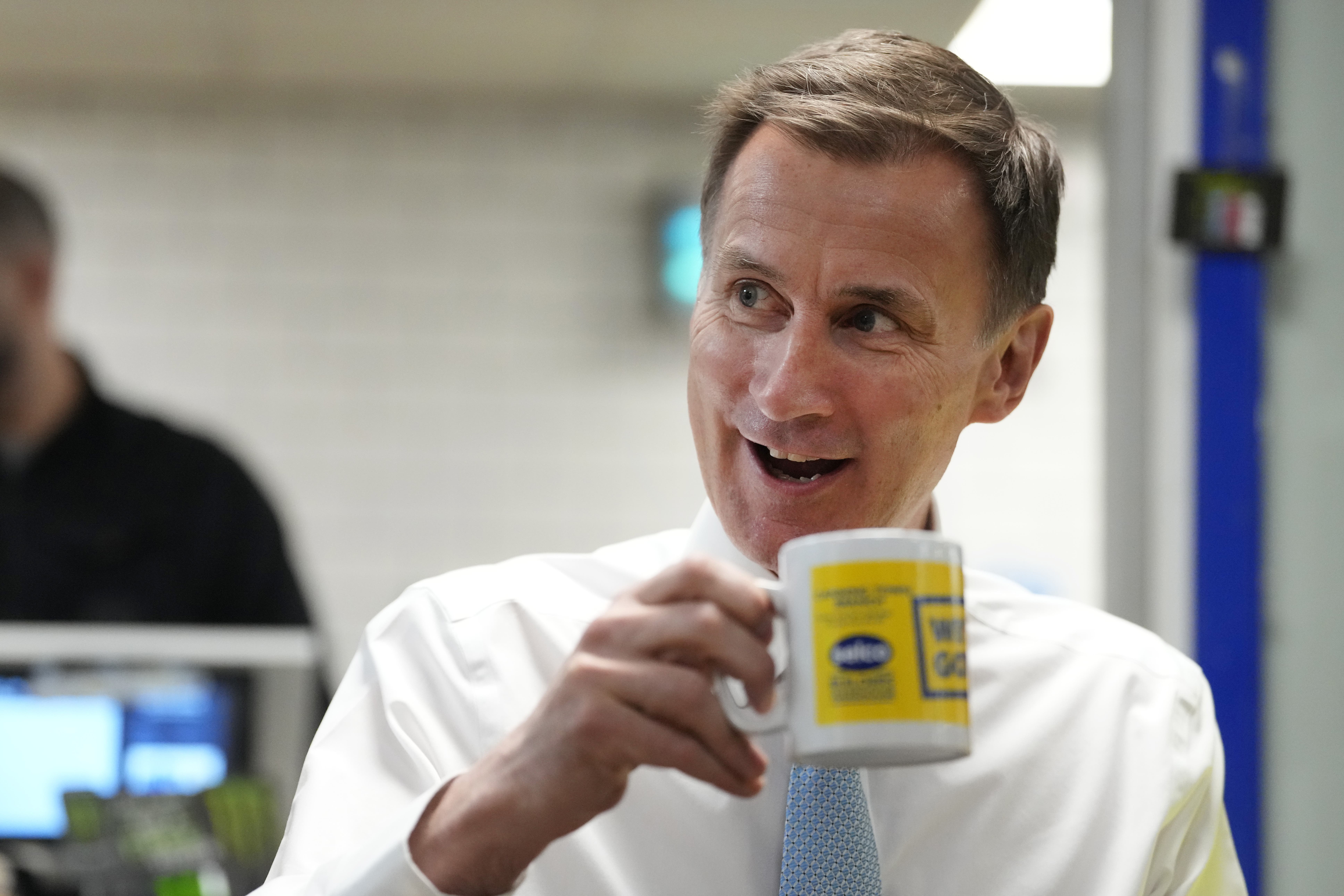Don’t let the Tories take the credit for lowering inflation – we’re all still worse off
Jeremy Hunt was quick to hit the airwaves this morning to crow about the inflation rate reaching its lowest levels in two years. But, says Sean O’Grady, it doesn’t feel like Britain is booming – and whose fault is that?


If you’re a glass half-full sort of person – or a government minister desperate for a positive headline – you’ll see the latest fall in the annual rate of price inflation as unalloyed good news. Which, in a way, it is, because it’s better than the alternative, which we’ve suffered from for too long.
If, like me, your one of life’s pessimists, you won’t be too impressed by prices rising yet again, ie another 3.4 per cent on top of all the other increases over the last couple of years (about 20 per cent) – which is on top of increases in council tax, frozen income tax thresholds and wages not always keeping up. If you feel worse off than you did before the pandemic, say, you’d be right.
This, as has been well advertised by the opposition, is the first parliament in the modern age where British living standards are lower than they were when the brief but bullish Johnsonian era began with the “Get Brexit Done” election of December 2019.
The overall rate of inflation isn’t the only factor in our sense of economic well-being. Anyone who has examined their council tax demand, been presented with a hike in their mortgage or rent, or tried to renew their car insurance in recent months will wonder why some people (ie Rishi Sunak) are so upbeat about how the economy has “turned the corner”.
It doesn’t feel like Britain is booming, does it? Who shall we thank – or blame? Jeremy Hunt was quick to hit the airwaves looking for the credit for getting the rate of inflation down. Yet much of it is simple arithmetic – that it was always bound to come down somewhat if energy bills didn’t double year on year.
The quiet men and women monetary policy committee of the Bank of England, so often castigated by Conservative politicians for neglecting to help them win the next election, should also be thanked for their patient skill and judgment. They have more difficult decisions in the coming months to guide inflation down to the 2 per cent target – but they should be satisfied that domestically generated inflation, through a wage-price spiral, failed to ignite quite as spectacularly as many feared.
Hunt and his colleagues have done their bit to support monetary policy with a relatively restrained fiscal policy, what Hunt calls “tough decisions”. To be fair, this shouldn’t be taken for granted, because the Truss experiment shows what happens when that is not the case. But it also has to kept in proper perspective. No chancellor should expect gratitude from the public for behaving like an idiot.
Just as the rise in inflation to double figures wasn’t primarily the fault of the Treasury, so too has its collapse not been primarily due to the wisdom of Conservative ministers. If you want to blame anyone or anything for the bout of inflation, then turn to Vladimir Putin, Brexit, the coronavirus and Houthi guerillas. Sadly, none are standing in the local elections or the general election.
Indeed, it is worth noting, Brexit as a cause of Britain’s economic problems has gone from the all-consuming, pervasive, exhausting and defining issue of our times to attracting less debate than Kate Middleton’s skill with Adobe Photoshop. Inexplicably, for example, Brexit was mentioned only fleetingly in Rachel Reeves’s Mais lecture, when she acknowledged “the OBR finding that long-run GDP is expected to be 4 per cent lower as a result of the government’s Brexit deal”. That, the only bombshell in her speech, was just left hanging in the air.
That sort of cash would easily pay for the infamous £28bn green prosperity plan, universal free school meals and a substantial pay rise for the junior doctors on day one of a Labour government. Failing to give Brexit its proper place in her Mais lecture would earn Reeves a “fail” from any economics tutor. But like Hunt’s blatant but feeble propagandising of the inflation figures, that’s politics, I guess.
So, we now seemingly accept Brexit as a given – like the weather, or the sun rising in the morning – an immutable fact of life. Even the Liberal Democrats have given up on Europe, a cause they took up as early as 1955; only the Scottish Nationalists pursue it as part of their drive for separation, oblivious to the necessary and damaging economic consequences of what its corollary, “Scexit”, would inflict on the Scottish economy and living standards, were they to leave the UK’s internal market.
Brexit remains the great unmentionable in our national life, with no one rushing to take the credit or the blame for it. We’d all like to forget it: but it will continue to deter investment and make our imports more expensive and thus leave us poorer for many years to come.



Join our commenting forum
Join thought-provoking conversations, follow other Independent readers and see their replies
0Comments